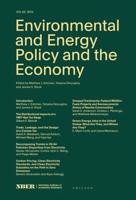Publisher's Synopsis
Illustrated with real-life case studies, this text considers how the environment has been managed in the past and how it can be managed more effectively in the future whilst balancing consumer needs against environmental resources. Two themes run through the book: that managing the environment requires a systematic and rational approach based on sound science rather than a series of "knee-jerk" responses to every issue that arises; and that individuals, through their informed actions, can make a significant difference.;The book starts with the general principles of environmental management - ensuring safety and sustainability - and shows how each can be assessed. It then goes into the management of individual environmental compartments (management of raw materials, land, air and water). Past and current approaches are described and assessed, followed by consideration of potential future methods. In each case it is clearly shown where individuals can have a significant effect on environmental management both postively and negatively.;The book ends on the need for overall environmental management - so that real solutions are found that do not merely shift problems from one environmental compartment to another. The author stresses that no one has all the answers, but that solutions can be found by constructive debate and co-operation, based on sound science.










